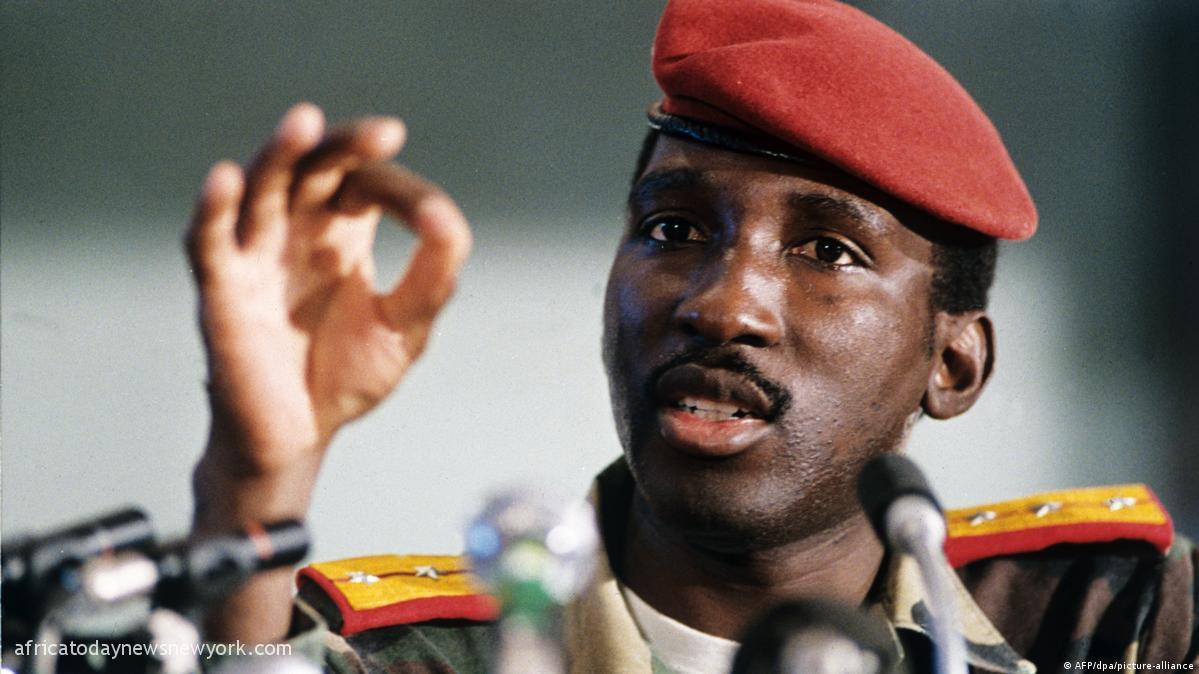The remains of President Thomas Sankara and his 12 companions assassinated on 15 October 1987 will be reburied later this month, at the Thomas Sankara Memorial in the capital, Ouagadougou, Burkina Faso’s transition government has confirmed.
This decision is the result of consultations among the Armed Forces, the families of the victims, the customary and religious authorities, and the International Committee of the Thomas Sankara Memorial, according to a statement issued on Friday.
Africa Today Nesw, New York reports that the bodies of Sankara and his companions of the People’s Democratic Revolution (RDP) were exhumed on 25 May 2015 as part of a judicial process to make sure the remains were indeed his.
Often perceived as ‘Africa’s Che Guevara’, the anti-imperialist revolutionary was hastily buried with 12 others after he was ousted in a 1987 coup.
Read Also: Compaore To Face Trials Over Murder Of Thomas Sankara
Permission for exhumation was denied during the rule of his successor, Blaise Compaoré, who left office in 2014 amid street protests.
Sometime last year, Mr. Compaoré received a life sentence in absentia for his role in the assassination of Sankara.
Sankara’s reburial will be done according to customary funeral rites followed by religious and military ceremonies.
The late president of Burkina Faso, Thomas Sankara – an icon for many young Africans in the 1980s – remains to some a heroic “African Che Guevara”, 27 years after his assassination at the age of 37.
Be it through the red beret, worn by firebrand South African politician Julius Malema, or the household brooms being wielded at street demonstrations in Burkina Faso, there are signs that his legacy is enjoying a revival.
Praised by supporters for his integrity and selflessness, the military captain and anti-imperialist revolutionary led Burkina Faso for four years from 1983.
But he is seen by others as an autocrat who came to power through a coup and valued discipline above human rights.

